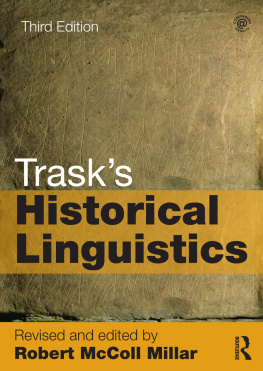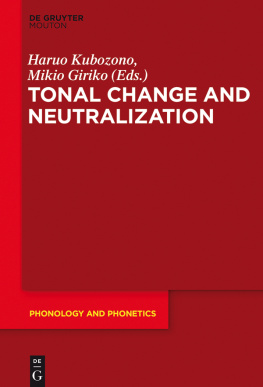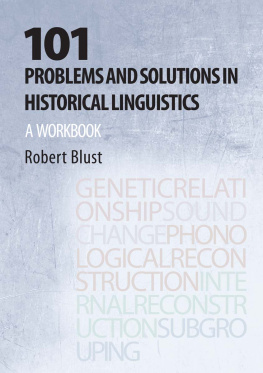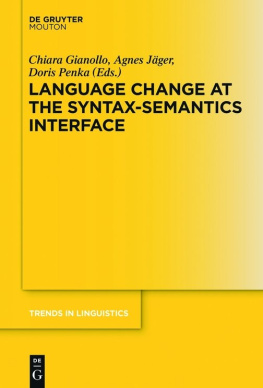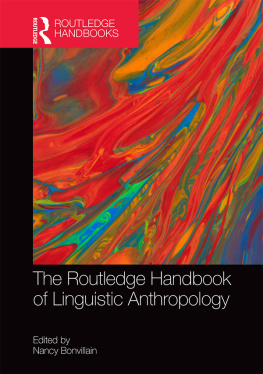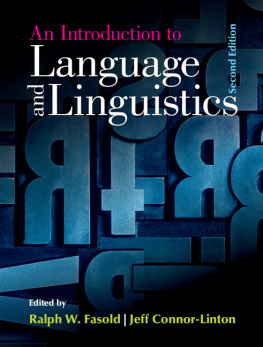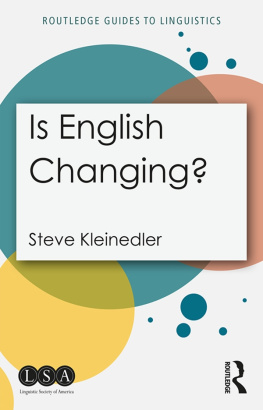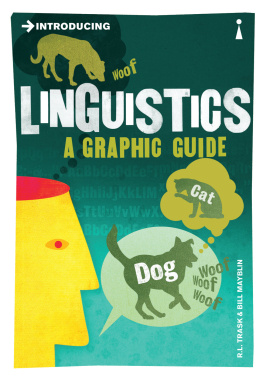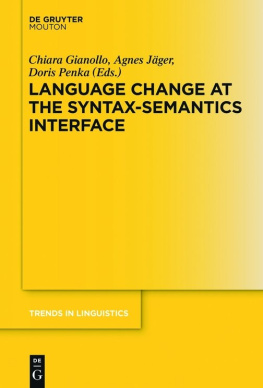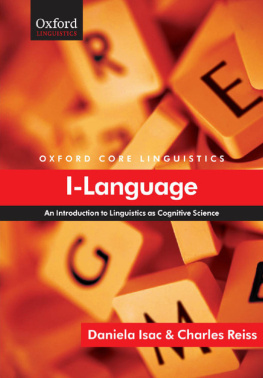
Trasks Historical Linguistics
Trashs Historical Linguistics, Third Edition, is an accessible introduction to historical linguistics the study of language change over time. This engaging book is illustrated with language examples from all six continents, and covers the fundamental concepts of language change, methods for historical linguistics, linguistic reconstruction, sociolinguistic aspects of language change, language contact, the birth and death of languages, language and prehistory and the issue of very remote relations.
This third edition of the renowned Trasks Historical Linguistics is fully revised and updated and covers the most recent developments in historical linguistics, including:
more detail on morphological change including cutting-edge discussions of iconization
coverage of recent developments in sociolinguistic explanations of variation and change
new case studies focusing on Germanic languages and American and New Zealand English, and updated exercises covering each of the topics within the book
a brand new companion website featuring material for both professors and students, including discussion questions and exercises as well as discussions of the exercises within the book.
Trasks Historical Linguistics is essential reading for all students of language, linguistics and related disciplines.
The accompanying website can be found at www.routledge.com/cw/trask 
Robert McColl Millar is Professor in Linguistics and Scottish Language at the University of Aberdeen. His most recent books include English Historical Sociolinguistics (2012) and (with William Barras and Lisa Marie Bonnici) Lexical Variation and Attrition in the Scottish Fishing Communities (2014).
Larry Trask was Professor of Linguistics at the University of Sussex and an authority on Basque language and historical linguistics.
Trasks Historical Linguistics is a jewel among textbooks of Historical Linguistics: it brings to life the intriguing paths on which human languages have wandered in their development, and sparks the enthusiasm of the reader to explore and study them, providing the necessary toolkit and background knowledge.
Robert Mailhammer, University of Western Sydney, Australia
Larry Trasks Historical Linguistics is an exemplary introduction to the field, and McColl Millars third edition is a much needed update: the new case studies and exercises are superb, and the revised reading suggestions extremely helpful.
Adrian Pabl, University of Hong Kong
This new edition of Trasks Historical Linguistics by Robert McColl Millar provides a thorough introduction to the field in the broadest sense while remaining accessible to students and specialists alike. Truly a useful book.
Garry Davis, University of Wisconsin-Milwaukee, USA
This revised and expanded edition of Trasks seminal work will make welcome reading for scholars and students alike.
Raymond Hickey, University of Duisburg and Essen, Germany
Accessible but not simplified, entertaining but not simplistic, this book provides thorough coverage of the field with a richness of explanation and examples that offers at the same time a synthetic overview and a wealth of data and detail. The new companion website promises to enhance its value as a textbook for the classroom and the independent learner.
Mark Richard Lauersdorf, University of Kentucky, USA
Trasks Historical Linguistics
3rd Edition
Edited by
Robert McColl Millar

Third edition published 2015
by Routledge
2 Park Square, Milton Park, Abingdon, Oxon OX14 4RN
and by Routledge
711 Third Avenue, New York, NY 10017
Routledge is an imprint of the Taylor & Francis Group, an informa business
2015 Robert McColl Millar and Larry Trask
The right of Robert McColl Millar and the late Larry Trask to be identified as authors of this work has been asserted in accordance with sections 77 and 78 of the Copyright, Designs and Patents Act 1988.
All rights reserved. No part of this book may be reprinted or reproduced or utilized in any form or by any electronic, mechanical, or other means, now known or hereafter invented, including photocopying and recording, or in any information storage or retrieval system, without permission in writing from the publishers.
Trademark notice: Product or corporate names may be trademarks or registered trademarks, and are used only for identification and explanation without intent to infringe.
First edition published as Historical Linguistics by Arnold 1996
Second edition published by Hodder Education 2007
British Library Cataloguing-in-Publication Data
A catalogue record for this book is available from the British Library
Library of Congress Cataloging-in-Publication Data
Trasks historical linguistics. Third Edition. / edited by Robert McColl Millar.
p. cm.
Rev. ed. of: Trasks Historical linguistics / R.L. Trask. London : Arnold, 2007.
Includes bibliographical references and index.
1. Historical linguistics. 2. Comparative linguistics. I. Millar, Robert McColl, 1966- II. Trask, R. L. (Robert Lawrence), 19442004. Historical linguistics. III. Title.
P140.T74 2015
417.7dc23
2014031176
ISBN: 978-0-415-70657-5 (hbk)
ISBN: 978-0-415-70658-2 (pbk)
ISBN: 978-1-315-72805-6 (ebk)
Typeset in Times New Roman
by Graphicraft Limited, Hong Kong
Additional materials are available on the companion website at www.routledge.com/cw/trask
Contents
Figures
Tables
This book is intended to give you an introduction to historical linguistics. It deals with the study of the histories and prehistories of languages, with the discovery of ancient connections between languages, and with the study of language change. Historical linguistics has existed as a scholarly discipline for well over 200 years, and it was the first branch of linguistics to be placed on a firm scholarly footing; nonetheless, it is at present one of the liveliest and most engaging areas of linguistics. The subject has recently been revolutionized by the sociolinguistic examination of variation and change, and today, unlike our predecessors, we can watch a language changing in front of our eyes (or, perhaps better, hear it changing in front of our ears). Progress in other areas of linguistics, such as the study of typology and universals and the study of syntax, has had a profound effect on our discipline, by opening up new avenues for exploration. Our traditional links with archaeology have recently been renewed in dramatic fashion, and some of us are beginning to look at possible links with such unexpected fields as genetics and physical anthropology. In the past two decades, exciting and controversial new hypotheses have turned up in the pages of our journals and attracted heated discussion. At the same time, new statistical and computational methods are being brought to bear on some of our outstanding problems. All of these developments are explained in the pages of this book.
The book is designed to be used with an instructor on a university course in the subject, but it can equally be read with pleasure and understanding by anyone interested in finding out something about how and why languages change, what the consequences of change are, and how we go about the business of uncovering the prehistories of languages and of families of languages.
Next page
